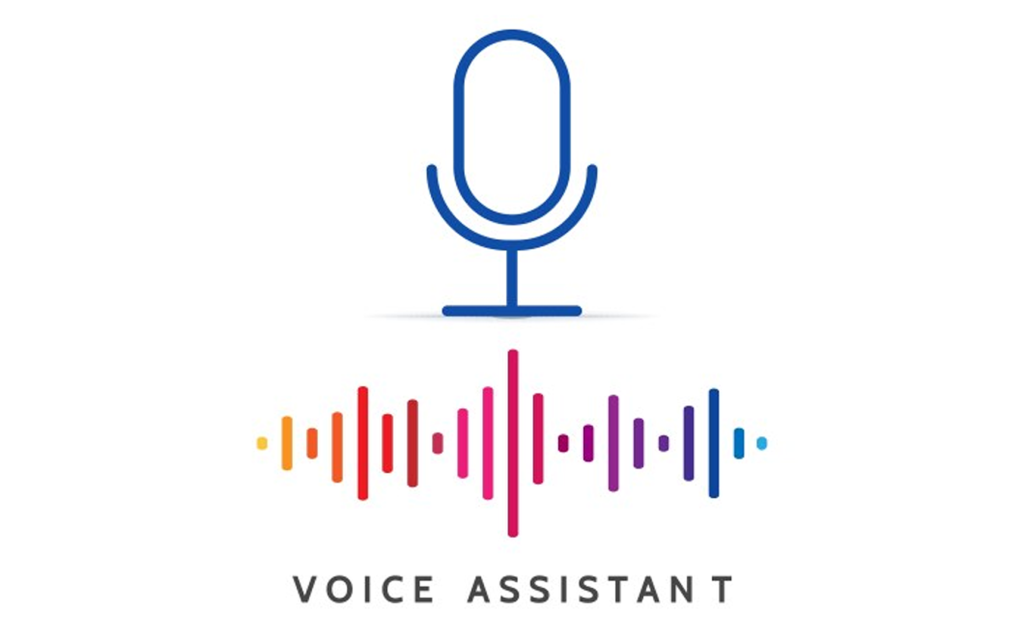To overlook voice search will leave SSDI firms trailing behind as clients increasingly prefer to find services through voice queries
Introduction

As the internet gained momentum in the early 21st century, consumers transitioned from newspapers as their primary source of information to the internet. Search engines filled the void, becoming the go-to tools for information discovery. However, just as newspapers faced challenges adapting to the digital age, search engine optimization is now encountering a similar seismic shift with the rise of voice search.
Newspapers struggled to maintain relevance and began transitioning to online formats, offering 24/7 news. This change provided readers with instant updates instead of waiting for the next morning’s paper. Similarly, the traditional keyword-focused approach to SEO is slowly being upended by voice search, which demands a different strategy to meet users’ needs for quick, conversational, and accurate responses. This evolution is reshaping how businesses, including SSDI firms, approach their online presence and customer engagement.
This article serves as a blinking red light for SSDI firms who overlook voice search in their SEO strategies. Voice search is a rapidly growing trend - it's an inevitable train that’s fast approaching. SSDI firms need to lay the tracks now before the train comes. Great opportunities are instantly lost when your firm is absent from voice queries.
Know the Difference

Voice search presents an alteration of SEO strategies for SSDI firms because of these key differences.
First, voice search queries are more conversational than traditional searches. Instead of typing “disability lawyers in North Carolina,” a voice search might be “Who are the best disability lawyers near me?” This shift requires content marketers to create conversational content that addresses specific questions or concerns of their audience.
Second, voice search queries are often longer and more specific, using natural language. For example, a traditional search might be "disability claims process,” while a voice search could be “How do I get my disability claims?" Incorporating these longer, natural language queries into your content can improve visibility in voice search results.
Third, voice search is highly localized, with users often seeking nearby businesses or services. This is an opportunity for local businesses to optimize their content and
Google Business Profiles to improve their visibility in voice search. Again, a query like “Who are the best disability lawyers near me?” can be leveraged by creating location-specific content, such as blog posts or landing pages that highlight proximity to the user.
The Changing Habits of Search

Voice search is a natural progression in how humans seek and manage information. With the rise of voice assistants like Siri and Alexa, it’s becoming increasingly clear that voice search is poised to become the preferred method of searching the internet. This evolution reflects a broader trend towards ease of use and immediate access to information.
Humans naturally gravitate towards methods that simplify their tasks. The fewer clicks and swipes needed, the better. Voice search exemplifies this shift by allowing users to perform searches through simple verbal commands. This convenience is driving a significant change in how people interact with search engines and access information.
There are two main factors influencing the shift to voice search: ease of use and the demand for immediate answers, particularly for local business searches. Voice search reduces the friction involved in typing queries, making it an attractive option for users who prefer hands-free, on-the-go solutions.
This shift towards voice search is a good example of how culture influences technology after technology influences culture. Initially, technology like Siri and Alexa was adopted for its novelty and convenience. As these voice assistants became widespread and more intuitive, they began to shape user behavior, leading to an increased reliance on voice search over traditional typing.
As voice search continues to grow, SSDI firms must adapt their SEO strategies to accommodate this trend, ensuring they remain visible and accessible in this new landscape of search. The integration of voice search into daily life is not just a technological advancement, but a reflection of the ongoing desire for more natural, efficient ways to find and manage information.
Brand Building through Voice Search

For SSDI firms, implementing voice search optimization can significantly boost brand name growth, particularly in local markets. Voice queries often involve local intent, such as "Disability lawyers near me". By optimizing for these queries, SSDI firms can enhance their local brand recognition and attract more nearby customers.
Furthermore, voice search can help SSDI firms establish themselves as leaders in their field. Providing quick, accurate responses to voice queries positions a firm as knowledgeable and reliable, fostering trust and loyalty among potential clients.
Structured data and featured snippets are essential for voice search optimization. Virtual assistants frequently read out the featured snippet as the answer to voice queries. By using structured data markup and providing clear answers to common questions, SSDI firms can significantly improve their online visibility in voice search results.
To build a brand through voice search, it’s crucial to understand the natural progression of search behavior. Internet searchers today are more sophisticated and demand more than just links; they want context. Featured snippets offer this context by delivering concise, relevant information directly in search results.
For SSDI firms, leveraging featured snippets can effectively establish and enhance their brand presence. When virtual assistants read out these snippets, they provide immediate context about who the firm is and what services they offer. This not only meets the informational needs of users but also positions the firm as a knowledgeable and trustworthy source.
By focusing on voice search optimization and the strategic use of featured snippets, SSDI firms can ensure that their brand stands out, providing valuable context that resonates with today’s savvy searchers.
Impact on SEO Strategies

Voice search will change the landscape of SEO strategies. Here are key aspects of how it changes the game and how to keep up with it.
1. Conversational Queries
Because voice search responds to speech commands, making queries becomes more conversational than standard text-based searches. This challenges SEO strategists to use keywords tailored for Natural Language Processing (NLP) to meet users’ search intent effectively.
2. Featured Snippets and Position Zero
Voice search results often come from featured snippets, also known as position zero. This creates intense competition among SEO web pages to be the top result for voice queries, highlighting the importance of optimizing content to appear in these prime spots.
3. Local SEO Complexity
Oftentimes, voice search is used for local searches, with “near me” queries. Optimizing for local SEO requires businesses to use relevant keywords (and even local jargon) and provide detailed information to meet the immediate needs of users performing local searches.
4. Mobile Optimization
As smartphones become ubiquitous, mobile-friendly websites have become an imperative in the design phase for anyone aiming to increase their online visibility. Many mobile searches are now conducted via voice assistants, making mobile optimization a key focus for webpages to ensure accessibility and usability for voice search users. Ensure fast page load times and a responsive design that works well on all devices by using apps like Google's Mobile-Friendly Test tool.
Voice Search Optimization Impact on SSDI Firms

For SSDI firms, optimizing their content for voice search offers some critical benefits:
1. Increased Engagement
Because voice searches are more conversational, it will help build the firm's credibility and brand awareness. By optimizing for voice search, SSDI firms can attract more organic traffic and generate potential leads through enhanced user engagement.
2. Expanding Reach
Voice search's user-friendly nature allows it to reach a broader audience, especially those who prefer speaking over typing. This accessibility opens opportunities to appeal to diverse target audiences, broadening the firm’s reach.
3. Enhanced Local Visibility
One noteworthy feature of voice search is its advantage for local business visibility. Many users rely on voice assistants for local queries, such as finding nearby services. By focusing on voice search optimization, SSDI firms can become the go-to option for local searches, improving their local presence and attracting more customers
Tips on How to Amplify Visibility through Voice Search

The methodologies to improve voice search visibility are quite simple; However, the difficulty lies in the implementation because voice search requires a near-complete re-think of common SEO strategies.
1. Keyword Research for Voice Queries
Since people use voice search conversationally, targeting long-tail keywords rather than short-tail ones is crucial for voice search optimization. Also, don't forget to include the local jargon that can be associated with the subject matter.
2. Content Structure and Formatting
Quality content must be structured for voice search users, who prefer conversational content. Use natural language that voice assistants can detect. Incorporating an FAQ section is effective for addressing common questions and aligning with user search intents. Tools like Answer the Public, SEMrush, or Google’s Keyword Planner can come in handy in finding relevant voice search queries
3. Optimizing for Featured Snippets
As discussed earlier, featured snippets are essential as voice assistants often use them to provide answers. To write snippets, provide clear and concise answers to the query at the beginning of the content. Also, create high-quality, authoritative content that is likely to be chosen by search engines for featured snippets. Use bullet points and headers for quicker reading. This increases the chances of your content being selected for snippets.
4. Local SEO and Site Management
Voice search frequently involves local queries. Optimize for local SEO by using relevant keywords to target nearby users. Ensure SSDI firm's Google Business Profile is updated with accurate information like address, contact number, and hours of operation. This helps voice assistants pull up the firm in local search results.
5. Technical SEO and Mobile-Friendly Experience
Technical SEO is key to a good user experience. Ensure fast page loading speeds and maintain a mobile-friendly website, as many voice searches come from smartphones. A well-optimized mobile site improves the SSDI firm's chances of being utilized by voice assistants.
The Future is Now

SSDI firms need to understand that voice search capacities have been around for a long time. Yet, not having voice search optimization in their SEO strategy today is always a day too late. On the other hand, implementing them today gives their business a marketing edge against those who still haven't used this strategy.
Voice search technology is advancing rapidly, with projections indicating that by 2025, 75% of U.S. households will own a smart speaker. Essentially, this will change how consumers interact with emerging technologies. Businesses should follow these developments closely and adapt.
People are increasingly seeking quick, accurate responses and prefer devices capable of handling complex tasks through simple voice commands. Based on these developments, SSDI firms will have to meet these expectations and optimize their SEO strategies that are in-tune with voice queries.
Anticipating these technological shifts positions their business to thrive in an increasingly voice-centric digital landscape.
Learn How DL Marketing Delivers Voice Optimization Services

Discover the power of voice search as part of your SEO strategy with our expert guidance. Disability Law Marketing Agency specializes in boosting your SSD firm or advocacy's online presence through proven and cutting-edge SEO strategies. Greenlight your voice search strategies with DL Marketing and shift your digital strategy to a higher gear. Get started now.





 Home
Home